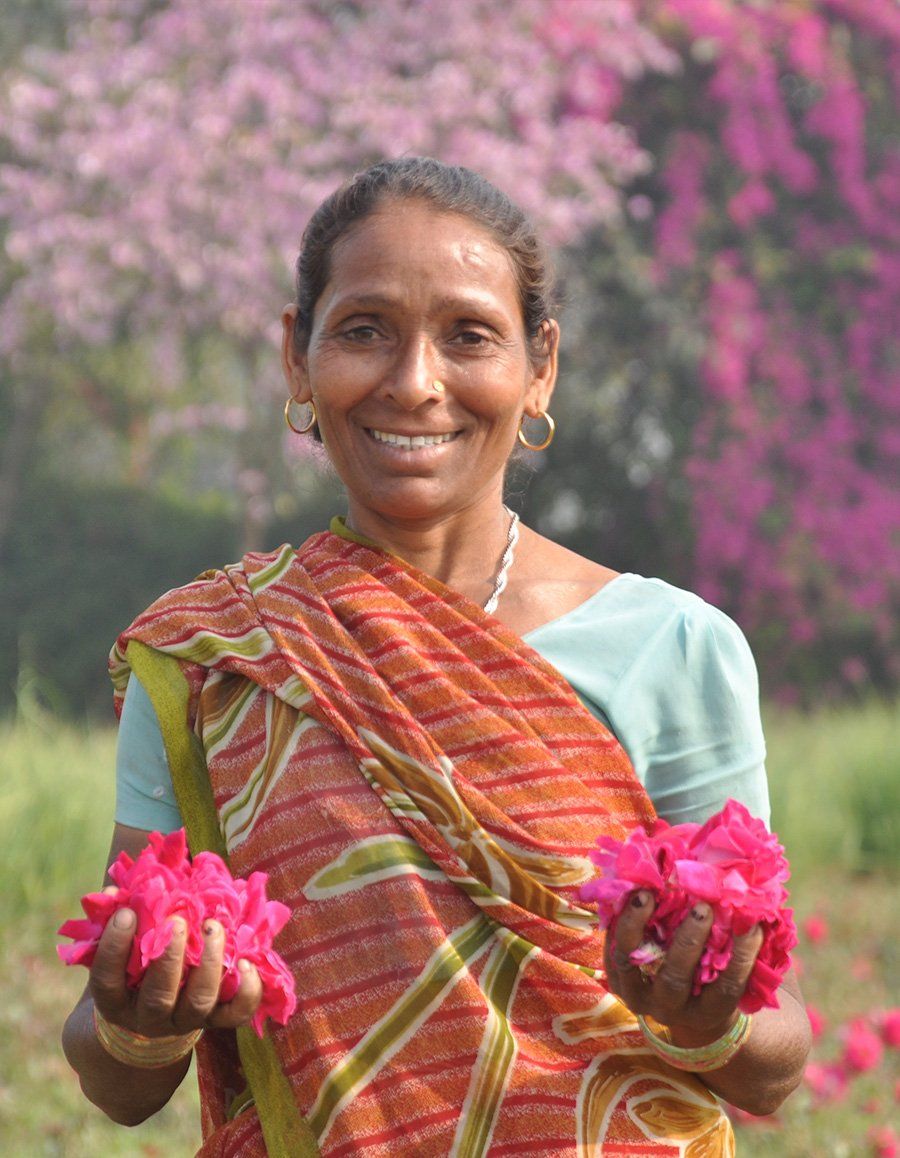Organic India and the Fair Trade Movement
The concept of fairness is borne of compassion — the feeling that we are in this life together, to help one another across the board. Farming is the largest industry in the world, and Fair Trade is predicated on supporting the hard-working people responsible for the food that ends up on our tables, as well as the plants and herbs that promote healing and maintain health. The FAIR TRADE Mark found on foods and supplements helps you identify products that align with your values.
Historical Perspective on Fair Trade
The history of food production through the centuries has taken a great many turns. For thousands of years, food from the wild sustained early human beings. As population grew and people pushed into areas less blessed with easily obtainable food, the idea of purposeful farming sprouted into an industry.
As feudalism declined in the Old World, there was a significant rise of cities and towns that transformed the food production industry from subsistence-based to a market-oriented. Land once held in common, and used mainly for grazing, came under the control of individual landowners, leading to more intensive cultivation of available land and the production of greater volumes of cheaper food to feed more urban populations. Ultimately, the transition from many smaller farmers to giant corporate growers (often called Big Agriculture) has led not only to illness from a lack of sufficient dietary nutrients, but also to mistreatment and marginalization of small farmers. The Fair Trade movement has worked to bring dignity, respect, and fair treatment back into play. Fair Trade is an alternative to exploiting trade-based partnerships — an equal partnership between food growers and us, the consumers of real, unprocessed, nutritious foods. Nearly 2 million farmers and workers (and counting!) in 75 countries participate in Fair Trade. Due to the damage caused by industrial farming practices to the environment, personal health and wellness, communities, farmers, and personal relationships, it is more important than ever to join hands in promoting fairer trading conditions. This also helps combat poverty, child labor, gender equality and climate change. Fair Trade also ensures that nearly 2 million farmers worldwide get a fair deal through the Fair Trade Minimum. Farmers also receive a Fair Trade Premium to invest in their communities.
The
ORGANIC INDIA farmer partners are at the heart of the
ORGANIC INDIA mission and vision — to serve a community dedicated to healthy conscious living by providing true wellness solutions. Beginning with a single farmer in 1999, the ORGANIC INDIA farmer partner community has grown to 3,000-plus farm families throughout India. All have embraced organic, bioregenerative agriculture and have enjoyed social, environmental and economic recovery as a result.
Meet an Organic India Farmer, Maya
Also known affectionately as “Chukti,” Maya is one of the ORGANIC INDIA “Rose Ladies,” a group of women who grow, care for, and harvest organic roses for ORGANIC INDIA Tulsi Sweet Rose Tea. In her own words:
“My work is to pluck rose leaves and flowers. I laugh with my co-workers and my day passes just like that — laughing. I feel good when I water and care for the plants and put leaves and grass into the compost. Since I have started working at Brindavan farm, there is no headache and no worries — as long as I am alive, I will work here. My heart is healthy and at peace, and my message to the world is ‘Namaste’.”











